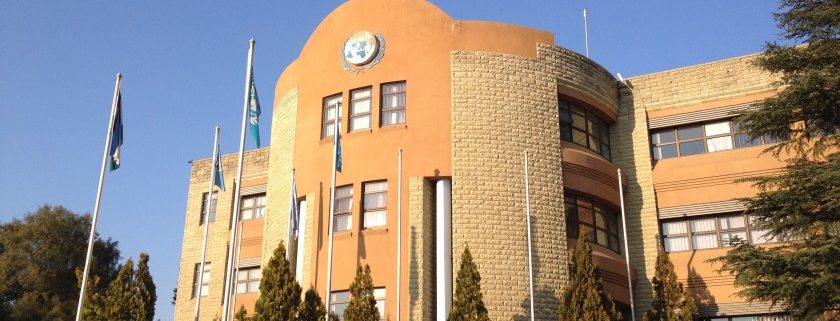United Nations Development Programme
Working in partnership for the development, progress, and prosperity of all Basotho.

The Lesotho United Nations Development Assistance Plan (LUNDAP) is a medium-term plan that details the collective contributions of both resident and non-resident United Nations Agencies toward the Government of Lesotho’s five-year development plan, known as the National Strategic Development Plan (2012/13-2016/17), or NSDP. The LUNDAP was developed through a participatory and consultative process and is fully alighted with NSDP priorities.
Overview of the work of UNDP in Lesotho
What We Do
The United Nations Development Programme (UNDP) partners with people at all levels of society to help build nations that can withstand crisis, and drive and sustain the kind of growth that improves the quality of life for everyone. UNDP in Lesotho supports the Basotho people to build resilience at every level to help achieve long-term sustainable development goals. We are providing assistance in the focus areas of poverty reduction; promotion of transparent, accountable and effective governance at all levels; and managing environmental changes by adopting an integrated approach to sustainable management of natural resources. The programme lays emphasis on addressing the cross cutting issues of gender, youth, and HIV/AIDS in its work across all its focus areas. Our support is governed by the Country Programme Document (CPD)2013-2017 and the Lesotho United Nations Development Assistance Plan (LUNDAP) 2013-2017.
Our Goals
The UNDP in Lesotho works in partnership with the Government and development partners to fight poverty, strengthen good governance, including the rule of law, human rights, promote gender equality, protect the environment and advance economic and social progress for all Basotho. The Country Programme Document (2013-2017) outlines three key goals that the UNDP aims to achieve by 2017: i) High and inclusive economic growth through increased public and private investment and creation of employment opportunities in the manufacturing, trade and financial services sector, ii) Reversal of environmental degradation and adaptation to climate change by adopting environmental management practices that promote a low carbon climate resilient economy that sustainably manages natural resources and reduces vulnerability, iii) Promotion of peace, democratic governance and building effective institutions by ensuring that national and local governance institutions deliver quality and accessible services to all citizens respecting the protection of human rights, promotion of gender equality, access to justice and peaceful resolution of conflict.
Estimated contribution in US$